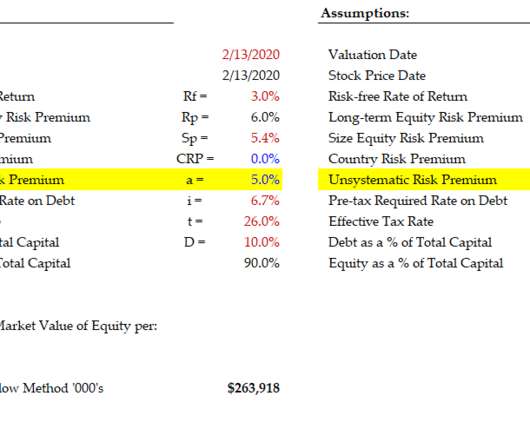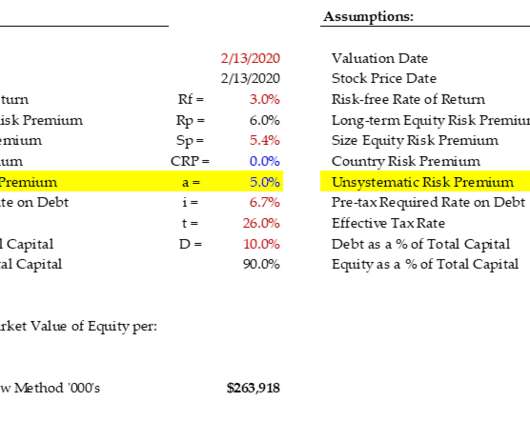ESG Valuation Considerations – Top Down or Bottom Up?
Value Scope
JULY 21, 2020
This work can be used to reconcile and support an adjustment to the CAPM, then the WACC, via Alpha and Beta. Using Alpha, however, it could be done. Alpha is an adjustment made to the Capital Asset Pricing Model (“CAPM”) as part of the calculation of the Weighted Average Cost of Capital, or “WACC.” million to $271.5












Let's personalize your content